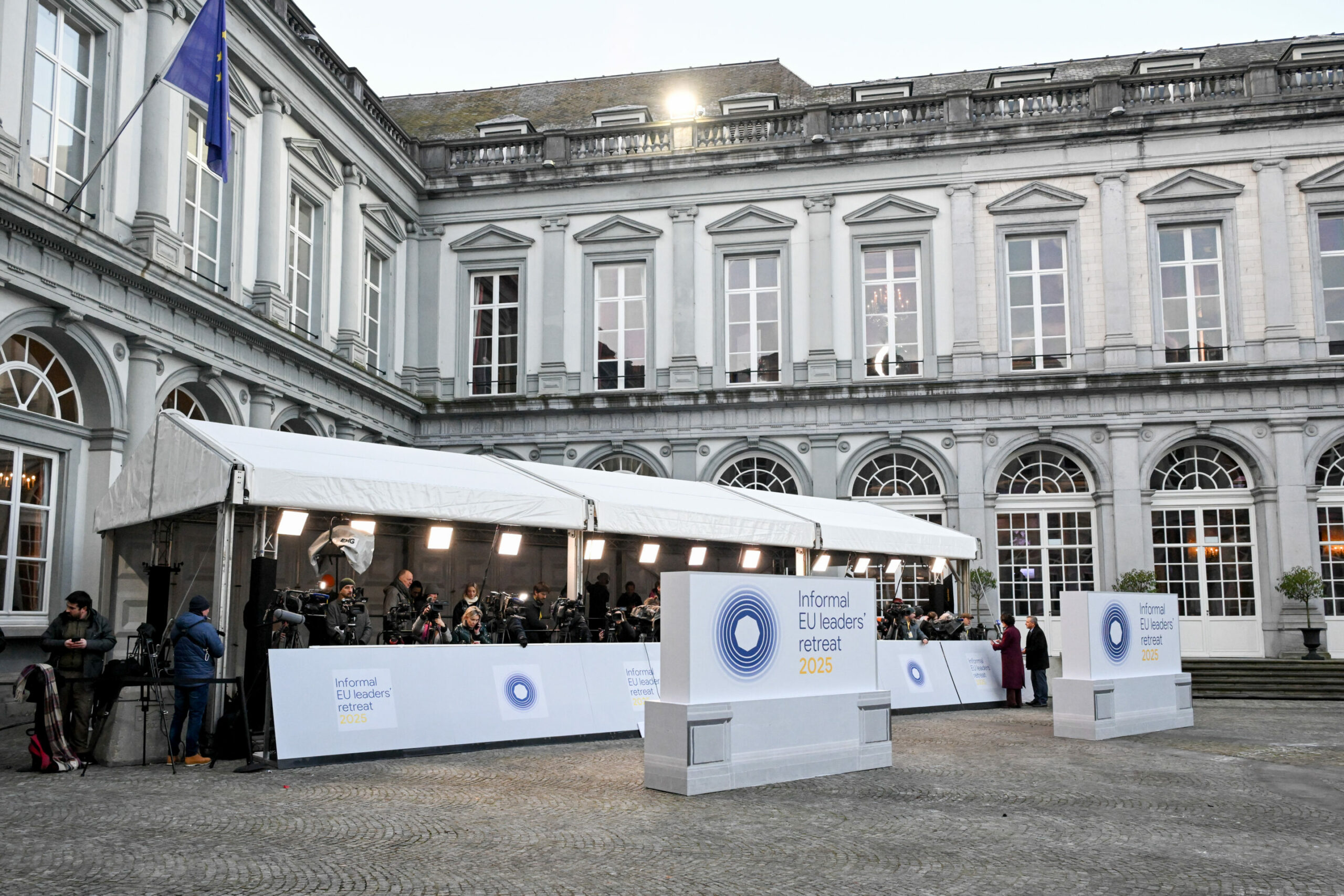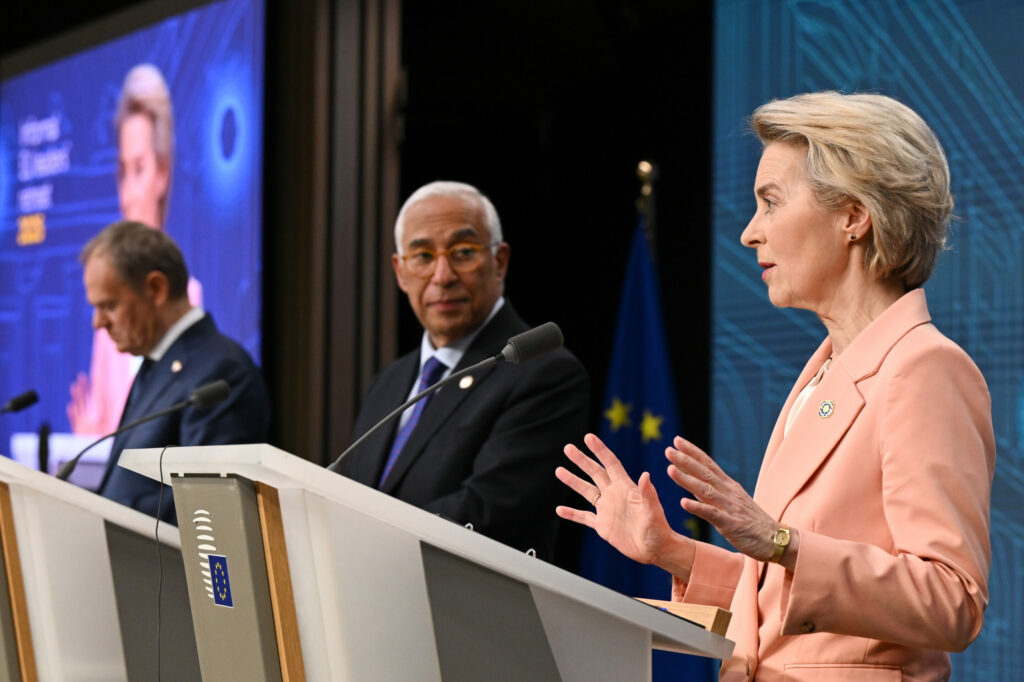The European Commission plans to give Member States more budgetary flexibility for defence spending, said President Ursula von der Leyen on Monday evening after an informal European summit on defence in Brussels.
"I am ready to explore and use the full flexibility within the Stability and Growth Pact [the European rules for overseeing national budgets] to allow a significant increase in defence spending," von der Leyen said. "In extraordinary times, it must be possible to take extraordinary measures."
There is broad consensus among European heads of state and government that after years of low investment, much more money needs to be pumped into defence. However, national budgets are limited and the Stability and Growth Pact requires member states to keep their budget deficit below 3%.
Von der Leyen also wants the European Investment Bank (EIB), which currently only invests in projects that serve both civilian and military purposes, to expand its activities. She said the EU’s investment bank is willing and has already reserved funds for this. The Commission President hopes this will encourage private banks to lend more to defence projects.
German Chancellor Olaf Scholz agreed that Member States should have more budgetary flexibility for defence investment. However, he, like other leaders, opposes the idea of borrowing money at the European level to fund projects.
"The European Union has no prospect of taking on common debt," said Scholz, who will face German voters later this month.

Informal EU leader retreat. Credit: European Union
Despite this, European Council President Antonio Costa wants to explore "other joint and more innovative options" to get projects off the ground. He noted that Member States have already made significant progress since Russia’s invasion of Ukraine. Defence spending increased by 30% from 2021 to 2024, and the 23 NATO member states spend an average of 2% of their GDP on defence.
Costa also mentioned that member states agreed to focus efforts on the most vulnerable areas of European defence capacity and on domains where the EU has clear added value, such as air and missile defence, missiles, ammunition, and military mobility. "Strengthening the European defence industry must be central to this effort. We need to produce more of the capacities we need, and faster."
Increased investments will also contribute to European prosperity and competitiveness, according to Costa. Von der Leyen agreed, adding, "If we invest billions, we want a return on our investment in the form of more know-how and good jobs here in Europe." The Commission plans to present a white paper with proposals in March, with heads of state and government aiming to make concrete decisions in June.
UK Prime Minister Keir Starmer was also in attendance on Monday, holding a joint press conference with NATO Secretary-General Mark Rutte before attending a dinner with EU leader to discuss deepening cooperation on issues such as defence and security.
The UK leader reaffirmed his desire to see a stronger UK-EU security partnership to tackle ongoing threats, "which will increase co-operation and bolster NATO further."

